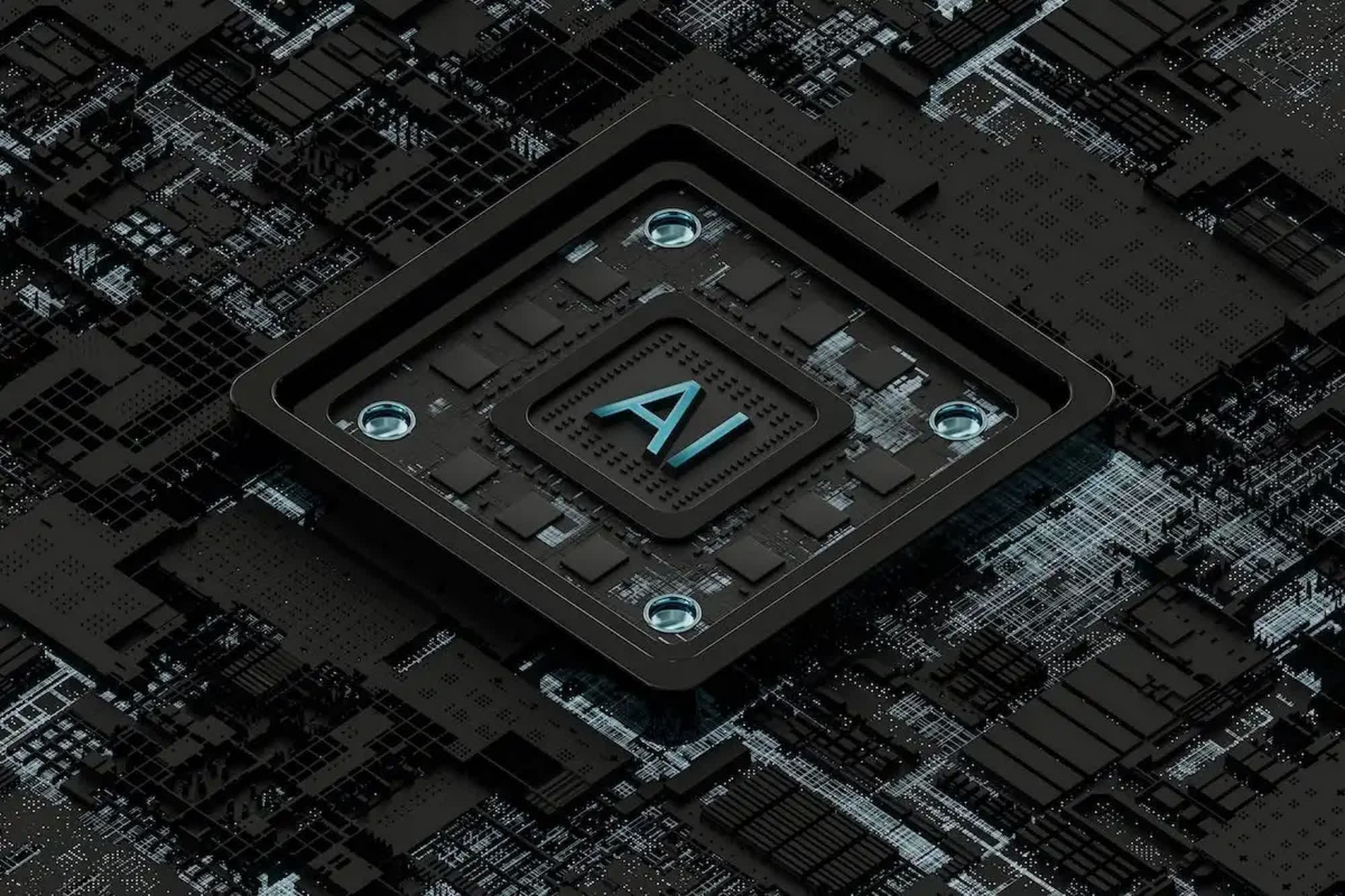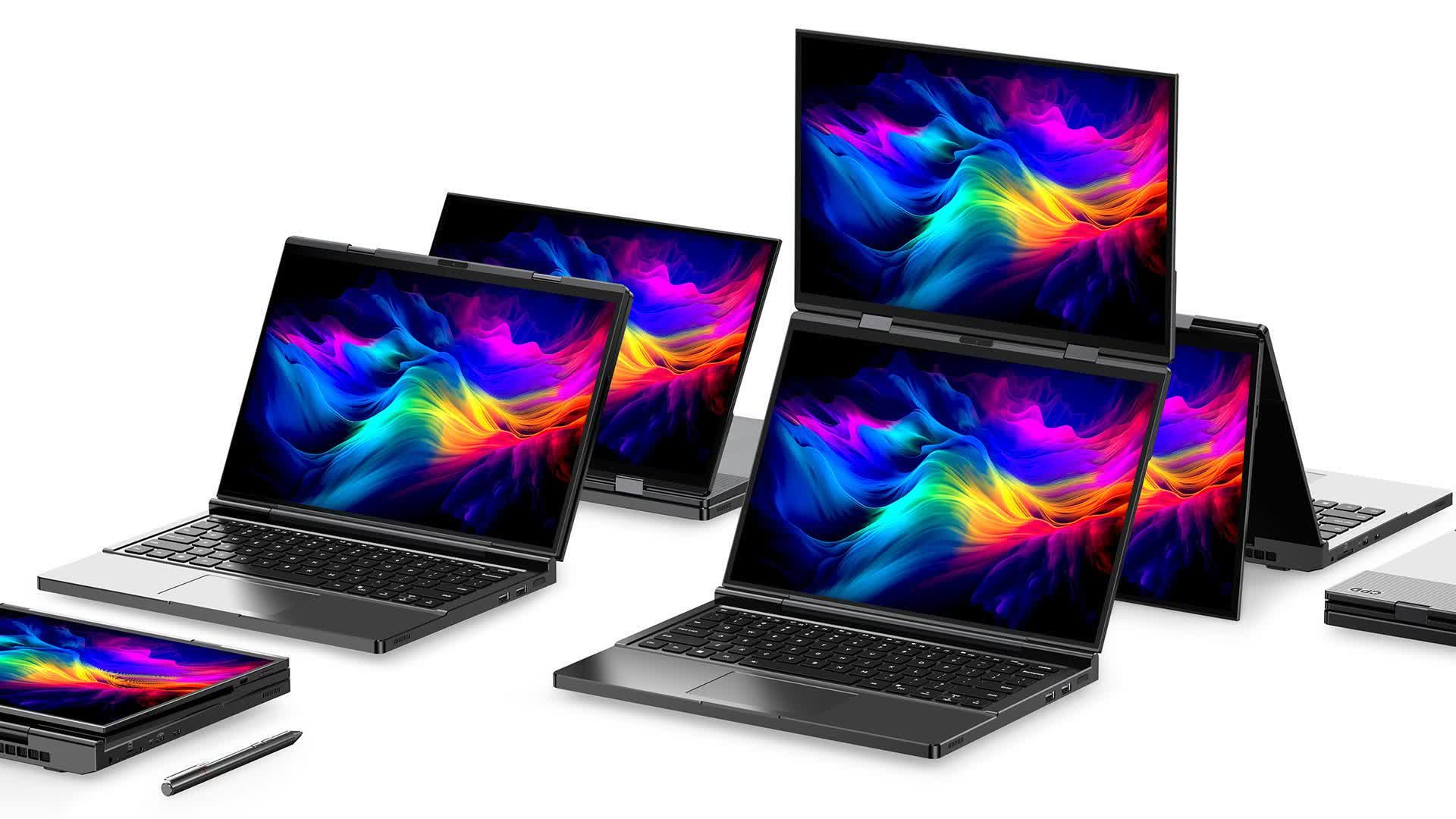Something to look forward to: GPD is known for unusual mobile designs, but the company has mostly focused on gaming, and all of its products are micro PCs. Although GPD is moving into standard-sized laptops, it's still trying to throw a curve ball with its answer to the emerging dual-screen trend. The new device is also marketed as an "AI PC," hinting at what might be under the hood.
Handheld PC maker GPD has revealed an early look at a full-sized dual-screen laptop. Hardware details on the GPD Duo are scant, but the available information could be enough to set it apart from similar offerings by Asus and Lenovo.
The device's two 13.3-inch screens use Samsung AMOLED panels, reaching 18 inches when fully extended. One screen can fold behind the other to provide a tablet-like form factor when the laptop is closed, not unlike the single-screen GPD Pocket 3.
GPD DUO high definition picture
– GPD Game Consoles (@softwincn) May 29, 2024
The GPD DUO features dual 13.3-inch OLED screens, utilizing Samsung's original AM-OLED panels. When folded, the device is the size of an A4 sheet of paper, and when both screens are fully extended, it measures 18 inches. It supports 10-point… pic.twitter.com/PrF0gVyMJr
Another aspect of earlier GPD PCs that the Duo maintains is a focus on stylus compatibility. The company stresses that the notebook matches the dimensions of an A4 sheet of paper when folded. With 4,096 pressure sensitivity levels and 10-point touch, it also supports the Microsoft Pen Protocol.
GPD hasn't confirmed the full suite of connection ports, but the promo image indicates that the Duo has plenty. At least two USB ports, a card reader, and an ethernet port are clearly visible. The company also confirmed that one of the ports on the rear supports OcuLink for external graphics cards.

Details on internals are unclear, but the 35W TDP and "AI PC" designation suggest one of the recent mobile processors from AMD and Intel that incorporate NPUs for onboard generative AI applications.
GPD's latest devices like the Win Mini, Win 4, and Win Max 2 all utilize AMD's Ryzen 8040 U chips with XDNA NPUs, making them likely candidates. However, an Intel Core Ultra 1 series chip isn't out of the question. The resolution of the provided teaser image isn't quite high enough to make out whether the keyboard includes Copilot keys in compliance with Microsoft's AI PC specifications.
Depending on the release date which, like the price, remains unclear, GPD could upgrade to an upcoming AI PC chip like AMD's Strix Point or Intel's Core Ultra 2 series. A more radical shift for GPD would be to introduce a unique AI PC running on Qualcomm's Arm-based Snapdragon X SoC like other systems adhering to Microsoft's recently introduced Copilot + PC branding. Further information might emerge at Computex next month.
